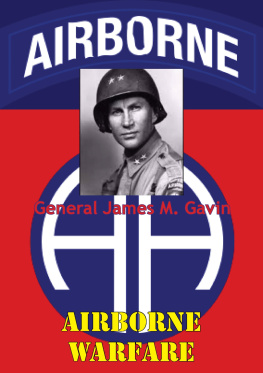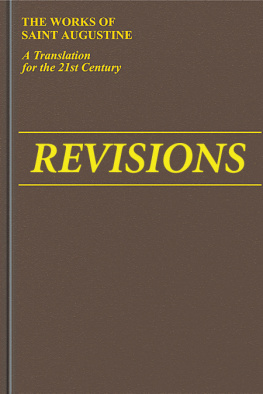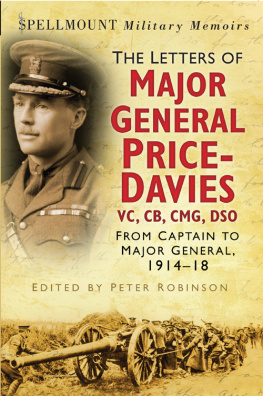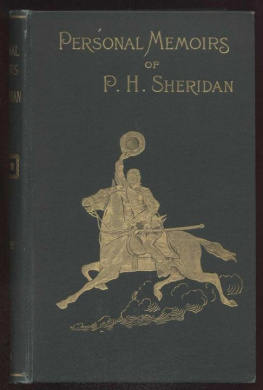This edition is published by PICKLE PARTNERS PUBLISHING
Text originally published in 1935 under the same title.
Pickle Partners Publishing 2011, all rights reserved. No part of this publication may be reproduced, stored in a retrieval system or transmitted by any means, electrical, mechanical or otherwise without the written permission of the copyright holder.
Publishers Note
Although in most cases we have retained the Authors original spelling and grammar to authentically reproduce the work of the Author and the original intent of such material, some additional notes and clarifications have been added for the modern readers benefit.
Table of Contents
THE DUKE OF VICENZA
ARMAND DE CAULAINCOURT, whose account of the Retreat from Moscow is presented in this volume, was the son of an ancient manorial family of Picardy. On the outbreak of the Revolution his father threw in his lot with the new regime, and was soon promoted lieutenant general in the Army of the Republic.
In 1799, at the age of twenty-three, Armand was gazetted to the command of the 2nd Carabiniers, and with them saw action under Moreau in the campaign of the Rhine. His military career was, however, cut short in 1801, when the First Consul chose him as the bearer of a personal letter to the Tsar. On Caulaincourt's return from Russia he was appointed one of the eight aides-de-camp to Napoleon.
On assuming the imperial crown Napoleon made Caulaincourt Master of the Horse. This was no sinecure as he was not only responsible for the Imperial stables and the Emperor's personal mounts, but had to organize and maintain the intricate courier system by which Napoleon kept in touch with Paris and the world while on his various campaigns and journeys. In 1807, however, he was appointed ambassador extraordinary to Tsar Alexander I. He remained in Moscow until 1811, becoming an intimate friend of the Tsar and gaining a thorough knowledge of social and political conditions in Russia. Napoleon showed appreciation of his services by creating him Duke of Vicenza in 1808.
His ambassador's knowledge of the country was put to use by Napoleon when he embarked on the ill-fated invasion of Russia in 1812. Caulaincourt's unhesitating frankness and criticisms of the plan of campaignindeed of the campaign itselfhowever much it irritated the Emperor, undoubtedly influenced his actions, and when, after the burning of Moscow (as narrated in Volume I of these Memoirs) he was forced to retreat, it was Caulaincourt whom he kept by his side and selected to bear him company on his hurried return to Paris.
CHAPTER 1
From Moscow to Krasno
THE Emperor and the Guard did not leave Moscow until about noon on the 19th. {1} Then, since the successive reports of the King of Naples confirmed that the enemy had retired, the Emperor took with him his whole establishment. Many refugees followed the army: and we met on the road many of the wounded from the encounter at Woronovo, of which the Emperor only now heard the details when already on the march. Among the wounded was Prince Charles de Beauvau, {2} an officer in the carabineers, whose thigh had been broken by a lance-thrust. He was lying on a teleg, which is a small Russian four-wheeled cart, and was going to Moscow to be bled. In spite of the discomforts and sufferings of his condition this unfortunate young man maintained admirable calm and courage. He smiled as though his wound caused him more pride than pain. Being confident that we should never return to Moscow, which might be the scene of yet more misfortune for him, I asked the Comte de Turenne, since I could not myself leave the Emperor, to hurry after M. de Beauvau, turn him back in his journey, and tell him to go to headquarters, from which we were then not more than a league distant. Meanwhile I asked permission of the Emperor to have him put in one of his carriages. This he granted immediately, urging me to take good care of him. It was the patience and control of this young man which saved him. {3} Two days later I was able by good fortune to bring him again into the company of M. de Mailly, son of the Marshal and wounded in the same encounter. {4} We brought him to Wilna, and from there they returned safely to Paris.
We slept at the manor-house of Troitskoie {5} and stayed there during the whole of the 20th for better concentration, many men and transports having fallen behind. It was here the Emperor finally decided to abandon Moscow, being forced to this by the losses incurred at Woronovo, the reports of the state of our cavalry, and the realization that the Russians would not come to terms. He was still determined, however, to attack Kutusoff; and to that end he quickened the movement of troops. It was his intention, if his success were such as he hoped to push beyond Kalouga and destroy the ordnance establishment at Toula, which was the most important in all Russia and in any case to direct his forces upon Smolensk, which he wished to make his principal outpost. The Duke of Treviso was ordered to evacuate Moscow on the 23rd if he did not in the meantime receive other orders. And he was to make ready for blowing up the Kremlin and the barracks. {6} The King of Naples reported that the Russians, having themselves suffered notable losses at Winkovo, had made no energetic pursuit of him as far as the Motscha: and that Kutusoff was withdrawn within his entrenchments at Taroutino. A few days later these reports were fully confirmed. {7} Several detachments of Cossacks appeared on our flank, but did not venture to cross our line of march.
I had made arrangements, by sending out detachments, so that the couriers from Paris should come direct to us from the second relay station before Moscow. The Cossacks, however, controlled that point and delayed the couriers, so that none reached us for three days. As usual, this worried and annoyed the Emperor more than I can express. On the second day he said to me:
"I see it will be absolutely essential to be in closer touch with my reserves. I will be useless to drive off Kutusoff and force him to evacuate Kalouga and his entrenchments: the Cossacks will still interfere with my communications so long as I haven't my Poles."
In this connection the Emperor complained of the action of M. de Bassano and M. de Pradt, sparing neither. Against the first he brought up the Russo-Turkish peace and the Swedish alliance; and attributing all his present difficulties, and any that might arise from them, to the lack of foresight, the incompetence, and the negligence of his minister and ambassador. The Emperor expressed the same view to the Prince of Neuchtel, and also reverted to the topic with me, on our way to the manor of Ignatiewo, {8} where we spent the night of the 21st.
Both these conversations led me to think that the Emperor had at last realized the absolute necessity of retreat, although he would not yet admit that he had decided on it. He still wavered, and some compelling force or irresistible fatality inclined him still to regret Moscow, and to go back there buoying himself up with the hope of some conspicuous success and an armistice, or negotiations, by which everything could be settled. So at least I suspected from what the Prince of Neuchtel told me and from the dispositions made on the 22nd, the day on which the headquarters were established Fominskoie. {9} The weather was bad and the ground so sodden with rain that we had great difficulty in making Borowsk in two marches across country. {10} The draught horses were finished, the cold of the night being too much for them. We already had to abandon a number of ammunition-cases and transports. It was on the evening of the previous day that the Prince of Neuchtel told me how for the first time the Emperor, in discussing the army, its movements, and the possible issues, made no reference to his former project: the project of holding Moscow while we occupied the fertile province of Kalouga, as the Emperor called it. This province must have been the apparent rather than the real object our expedition; for, in the reflections he was led to make, talking with the Prince of Neuchtel and myself, by the delay of the couriers, there was as yet no indication of a settled plan.









